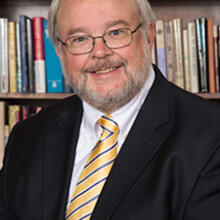Where is the most dangerous place, and what is the greatest challenge for U.S. foreign policy? The terror of ISIS in the Middle East? Nuclear negotiations with Iran? A broken peace process in the Holy Land? Russian aggression in Ukraine? Actually, the most dangerous place for our nation’s foreign policy may be the United States Capitol. The greatest challenge may be how Congress frequently undermines, evades or polarizes essential choices about U.S. leadership in a dangerous world.
Since 2015 began:
• Speaker of the House John Boehner invited the Israeli prime minister to use a joint session of Congress to attack the policies, leadership and competence of the U.S. president in leading a coalition of world powers to curb the nuclear ambitions of Iran. Sixty members boycotted the session; many more cheered Mr. Netanyahu’s attacks on the efforts of the U.S. government.
• Forty-seven Republican senators wrote a letter to the leaders of Iran insisting that the president with whom they were negotiating did not have the power to reach a lasting agreement, strengthening those who oppose any restraints on Iran’s nuclear capacity. After headlines called them traitors and fools, some explained they had hurriedly signed as they left D.C. to avoid a snowstorm.
• Congress continued to evade its responsibilities to debate and decide on the use of military force to combat ISIS and related terrorist groups who are savaging Christians, other Muslims and any sense of decency. Congress would rather criticize than vote on whether, how and how long to authorize the use of force.
• House Republicans seized on Hillary Clinton’s private email and unpersuasive excuses to rehash and politicize Benghazi once again, even though the Republican House Intelligence Committee dismissed major accusations and conspiracy theories.
• An already insular White House has grown more secretive, increasingly asserting executive power and dismissing Congressional roles and responsibilities, since legislative action seems almost impossible in polarized and paralyzed Washington.
Beyond these partisan games, there is a surprising example of cooperation across political and ideological lines to advance the common good and U.S. interests. Bi-partisan commitment and effective religious advocacy have increased U.S. assistance for the poorest people on earth, helping to reduce hunger, save lives and advance our nation’s interests. At a time of substantial budget cuts, help by the United States to reduce poverty has grown from $21.8 billion in fiscal year 2012 to $26.8 billion in FY 2015.
The concept of foreign aid is neither popular nor understood. Its opponents, however, are not powerful lobbies but ignorance and indifference. Polls report Americans think the United States spends too much on foreign aid. When asked how much of the federal budget is spent, the average answer is 25 percent. When asked how much should be spent, a typical answer is 10 percent. In fact, the United States invests less than 1 percent of the federal budget in development assistance focused on poverty. Much more is needed, but resisting cuts and increasing assistance is a Washington miracle in today’s budgetary and partisan context.
This is the result of determined advocacy in Washington and around the country. Stephen Colecchi of the U.S. Conference of Catholic Bishops reports that the conference and Catholic Relief Services are “relentless in defending poverty-reducing assistance and urgent humanitarian aid.” Both Colecchi and David Beckmann of Bread for the World said they make the case that this is “the right thing to do…and the smart thing to do,” for economic, security and moral reasons. Beckmann says they advocate both “reforms to make aid more effective” and “additional resources to reach more people.”
These efforts build on and contribute to the leadership of the Obama administration and unusual cooperation between Congress and the administration. Key Congressional Republicans and Democrats work together to protect these resources and make these life-saving investments. This essential alliance will be tested in the current budget battles. In contrast to dangerous dysfunction on international affairs, this quiet, consistent work of key Republicans and Democrats offers hope and help to a hungry world. It is a rare example of principled, bipartisan and moral leadership that others should follow.








